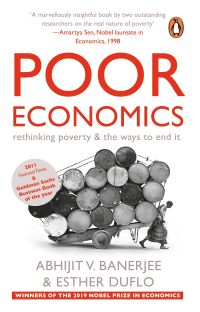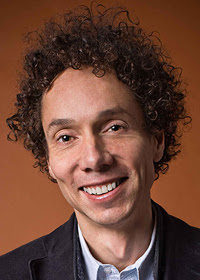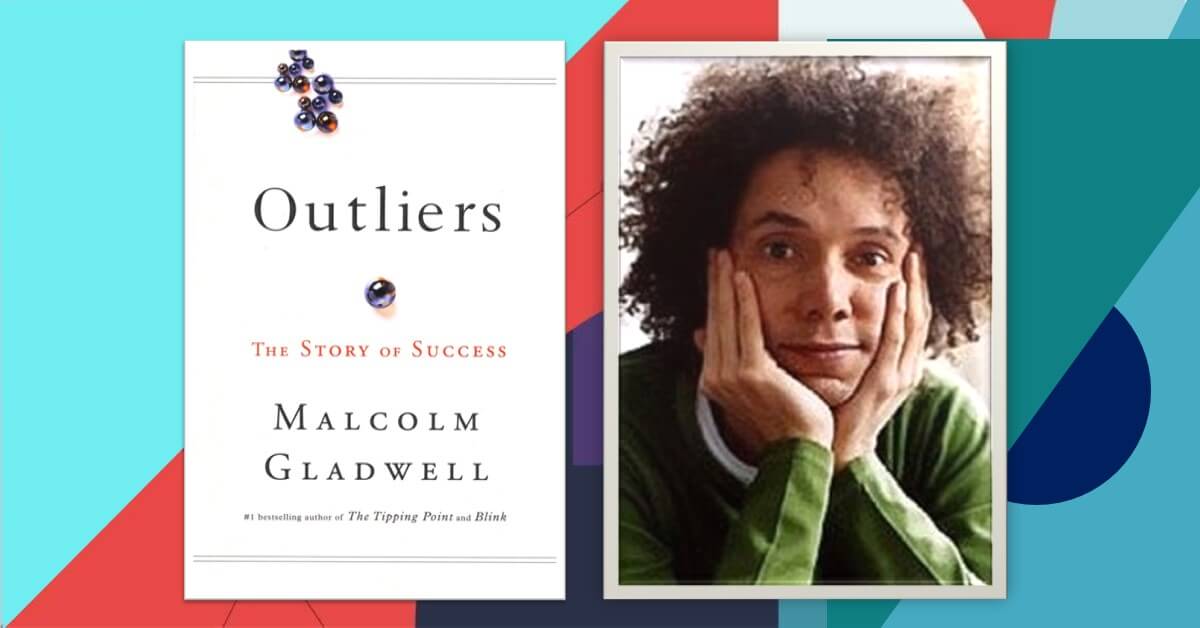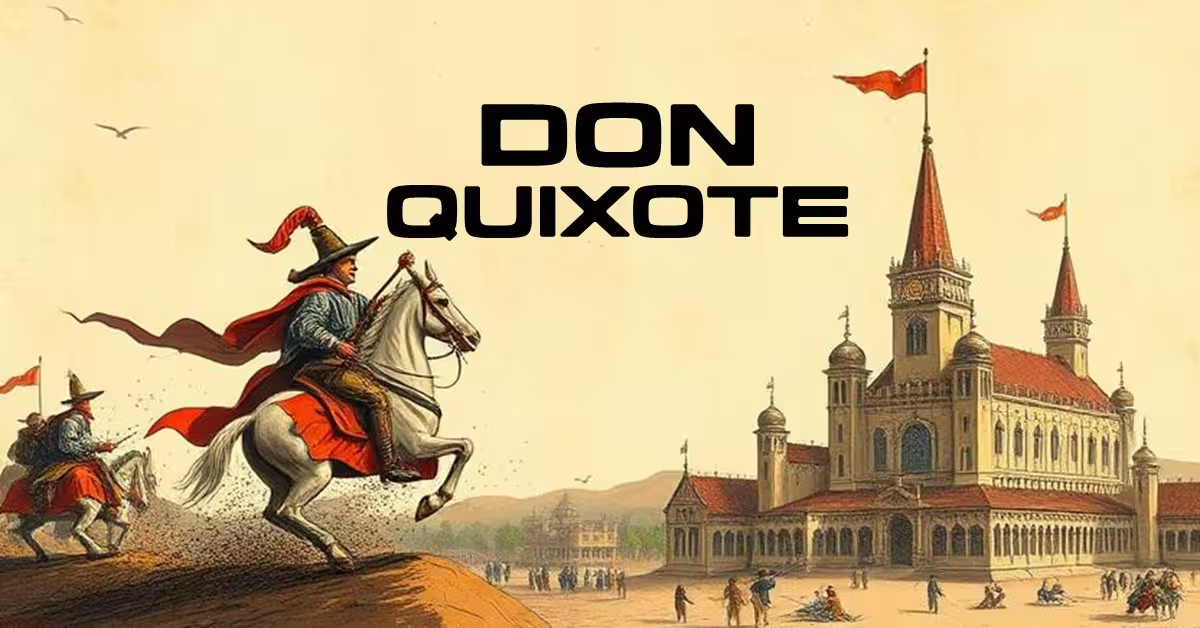Last updated on November 7th, 2023 at 08:32 am
Outliers: The Story of Success by Malcolm Gladwell presents to the world that whatever we achieve and whatever success we are entitled to are the results of opportunities, time, age, and the condition we are born in. They mostly are dependent on our attitude and our dependency on one another.
Suppose, in every chapter, Gladwell emphasises that our physical and mental wellbeing are largely dependent on our community of the people we live with. ‘The value of the world we inhabit and the people we surround ourselves with have a profound effect on who we are,’ he writes.
About success, he concludes that “that success follows a predictable course. It is not the brightest who succeed. Nor is success simply the sum of the decisions and efforts we make on our own behalf. It is, rather, a gift. Outliers (successful people) are those who have been given opportunities and who have had the strength and presence of mind to seize them. For the Beatles, it was Hamburg. For Bill Gates, the lucky break was being born at the right time and getting the gift of a computer terminal in junior high”.
Malcolm says, “This is a book about outliers, about men and women who do things that are out of the ordinary”.
Regarding our opportunity towards success, Gladwell relates the biblical principle of Talent, where Jesus teaches his disciples that ‘those who already have in abundance, will receive even more, and those who have less will take away what he has”. He argues, showing the selection mechanism of Hockey players in Canada, that in the group of hockey players, the very best of best were borne—40 per cent—between January and March.
Success is a phenomenon of relative age
Oftentimes time successful people, especially in Canadian Hockey and European football, are successful just because of their relative age advantage over their peers. He shows that most of the successful and top Hockey and football players were born between January and April of the year. And because in such sports the cut-off date maters.
As such, in regard to the selection, kids who were born in the first quarter of the year got selected first and advanced in training and maturing themselves. The initial advantage of being borne in the early part of the year has over the child borne at the end of the year persists. They get selected not because they were better performers than other children, but because of the system’s requirement to select kids borne in the initial part of the year.
He shows that, the selection process of the player from their early age—at school. “It locks children into the patterns of achievement and underachievement, encouragement and discouragement, that stretches for year on and on for years”. Meaning, the children who are born in the early part of the ear, and got admitted early at school give an advantage over, the children who got admitted in the later parts of the year.
Success Is a 10,000-hour rule/ opportunity
Over most of Outliers, Malcolm presented the successful people of the modern-day, who were fortunate to invest 10,000 hours into for what why have become saucerful today. 10,000 is believed to be the magic number for true expertise.
Outliers shows that people from Mozart to Bill Gates, all have had an opportunity to put 10,000 hours of practice into their works. For someone to reach 10,000 hours one might need ten years or can be achieved in five years.
What Bill Gates had was an incredibly lucky series of events. People like John Lennon, Paul McCartney, George Harrison, and Ringo Starr of the Beatles, Bill Joy, and Bill Gates got extraordinary opportunities to use 10,000 hours opportunity. Billy Joy, from “Bill Joy got an extraordinary, early opportunity to learn programming on a time-sharing system as a freshman in college, in 1971. Bill Gates got to do unlimited real-time programming as an eighth-grader in 1968 at Lakeside Junior high.

The Beatles were lucky to be invited to Homberg bars to practice throughout the weeks for 10,000 hours until they became famous. Bill Joy was fortunate to be at the University of Michigan, Bill Gates was fortunate that he came from a wealthy family to be at Lakeside School, where only wealthy kids were able to be admitted.
Regarding opportunity he says, “Biologists often talk about the “ecology” of an organism: the tallest oak in the forest is the tallest not just because it grew from the hardiest acorn; it is the tallest also because no other trees blocked its sunlight, the soil around it was deep and rich, no rabbit chewed through its bark as a sapling, and no lumberjack cut it down before it matured”.
Success is a happy accident of time
Outliers are the beneficiaries of unusual opportunities. They benefit from hidden opportunities.
He convincingly proved that American billionaires like John D. Rockefeller, (1839), Andrew Carnegie (1835), Frederick Weyerhaeuser, (1834), Jay Gould (1836), Marshall Field (1834), George F. Baker (1840), Hetty Green (1834), James G. Fair (1831), Henry H. Rogers (1840), J. P. Morgan (1837), Oliver H. Payne (1839), George Pullman (1831), Peter Arrell Browne Widener (1834), Philip Danforth Armour (1932) were lucky to be billionaires because the time they were born: 1930s.
The 1930s was the time when the American economy went through the greatest transformation in history. And people like Bill Joy, Bill Gates, Steve Jobs, and Paul Allen were successful because of the “Accident of Time”, place and birth while most of them were born between 1954-1955. People born before 1954 and after 1955 did not get that opportunity. For them, success is a combination of the opportunity to practice, hard work, and the 10,000 general rules of success.
Success is not having a higher IQ
Having a higher level of IQ is a precondition to success in the real world. Many people with higher IQ levels than Albert Einstein did not succeed. There is no relationship between IQ and success. Malcolm found that having an additional IQ does not seem to translate into any measurable advantage in the real world.
But that does not mean that there is no real difference between the IQ levels. To be successful one just has to have intelligent enough. Just like in Basketball, after a certain point, height stops mattering, while one just need to be tall enough at the initial stage.
An American college dropout named Christ Langan was famous for his IQ level. His IQ was 195, while Einstein had 150. He was born into a broken family and economically underprivileged and harsh conditions.
Malcolm has tried to tell us that for Christ Langan to have a higher IQ than Einstein does not make him smarter or more productive than Einstein. It simply means that people with a higher IQ can think better and clear, the way Langan mastered physics and mathematics.
“Having intelligence is not enough, But “Practical Intelligence”. “According to Robert Sternberg”, writes Malcolm, “Practical Intelligence” is a particular skill that allows you to talk your way of a “Murder rap” (a charge of murder). Christ Langan, the man with the highest IQ lacked when he failed to convince his dean at Montana Stata to shift his classes from morning to afternoon section before he dropped out of college.
For someone to be a success it is not enough for him to have higher intelligence, but ‘the practical intelligence. Practical intelligence teaches us to take advantage of opportunities, to deal with problems, negotiate, talk through. It helps us say what, when, and how. Which not everyone is fortunate to have. We acquire that from our family, and the way our parents nurture us.
Success is having practical intelligence
To Steenberg “Practical Intelligence” is knowing what to say to whom, knowing when to say it, and knowing to say it with maximum effects?
‘White IQ is an innate ability, Practical intelligence” has to be learnt. It has to come from somewhere and the place where we seem to get this kind of attitude and skill is from our families.
Malcolm presents two family traits based on economic class: Middle Class and poor. Middle-class family parenting involved what is called “Concerted Cultivation”. A middle-class family attempts to actively “foster and assess a child’s talents, opinions, teaches to negotiate and reason”.
In concerted cultivation, a child is “taken to museums and gets enrolled in special programs and goes to summer camp, where he takes classes. When he’s bored at home, there are plenty of books to read, and his parents see it as their responsibility to keep him actively engaged in the world around him”. But for a child from a poor family, these are luxuries.
They teach their children to assert themselves with the people in positions and authority. They are thought to have ‘the Sense of entitlement’.
On the other hand, there is the way poor families parent children. They follow the strategy of “accomplishment of natural growth.” They see it as their responsibility to care for their own.
“The poorer children were, to her mind, often better behaved, less whiny, more creative in making use of their own time, and had a well-developed sense of independence. But in practical terms, concerted cultivation has enormous advantages. The heavily scheduled middle-class child is exposed to a constantly shifting set of experiences. She learns teamwork and how to cope in highly structured settings. She is taught how to interact comfortably with adults, and to speak up when she needs to”.
This is the Practical intelligence” knowing your right, what to say when to say and assert yourself. Therefore, success is about class advantage. Being wealthier, going to better schools, and having a sense of entitlement does a lot more than having a higher IQ.
Success is the readiness with skill
From the calendar advantage, the happy accident of time to the ‘concerted cultivation, Outliers shows that successful people were successful because of their readiness with the skills the time necessitated. They were ready having invested 10,000 hours into their profession before the revolution occurred. Moreover, no one succeeds from nothing.
They were just born at the right time in the right ethnicity. That’s why America’s Jews were saucerful lawyers or garment businessmen owing to the time and ethnicity.
However, regardless of one’s present disadvantage, the Outliers who did not triumph over adversities, rather adversities ended up their opportunities. There are no self-made successful people.
People like Joe Flom, the successful takeover layer, used his adversity as stepping stones to success. Being a son of Jewish immigrant parents, growing up during the Great Depression Joe could not attend powerful, white-shoe law firms. The elite WASP (white Anglo-Saxon protestant) law firms would not take the case related to corporate takeover and considered it ungentlemanly.
But, being one of the unemployed lawyers he took the “whatever Come in the door” case. From the 1970s to 1980s, when the antipathy toward lawsuits fell, and the companies needed to be defended against a lawsuit from rivals, they needed people like Joe Flom for ‘Property Rights’.
Going by the logic of the 10,000-hours magic rule, Joe Flom had already out it during his previous 20 years of practice of ‘proxy fight’, while on other white-shoe firms took such a case. And when the time had been changed, Joe had already become skilled with 10,000 hours at his disposal of a proxy fight. And there was no better proxy fighter than him. The changed time changed him.
Nevertheless, throughout history, successful people were probed to be born at the right time and take advantage of the demographic, political and natural situation. For American Jewish lawyers and businessmen, the 1930s were a magic time, magic time was 1955 for software developers, while 1935 produced many entrepreneurs in history. Success also means taking advantage of time.
Success: a cultural legacy of success and failure
For people to succeed or to be a failure in their professionalism our cultural legacy is also responsible. Both success and failure correlate with our culture and cultural legacy. Such as why students from Japan, Korea, Singapore, and Taiwan are better in mathematics than their American peers, our agrarian culture happens to explain a lot, according to Malcolm.
The reason why so many Korean airline crashes happened so frequently can be explained through the ‘culture honour’ lens. ‘Culture honour’ means a person is ready to respond to fight at the slightest challenge to his reputation, which depends is his livelihood, wealth, subsistence or self-worth. Being successful means upholding self-worth.
The frequency of Korean Airlines’ crashes is related to Koreans ‘high power-distance index (PDI). Power distance is concerned with attitudes toward hierarchy, specifically with how much a particular culture values and respects authority.
It happened that because of high respect to the captain, the first officer and flight officers could not intervene him even when he was wrong while flying. Because of high respect to the pilot, flight officers tend to speak in “mitigated speech”, which refers to any attempt to downplay or sugar-coat the meaning of what is being said. We mitigate when we’re being polite, or when we’re ashamed or embarrassed, or when we’re being deferential to authority.
A cockpit is not for mitigated speech, it’s a place for command, especially when a crash is about to happen. Malcolm shows that the 1990 Colombian airliner Avianca 052 crash was responsible not only for “fuel exhaustion”, but also because of mitigated speech. The first officer of the flight thought the air traffic controller at New York was angry with him when reported about the ‘fuel exhaustion, and his high-power distance was hurt.
He thought the man at the ATC disrespected him. The situation was not communicated properly due to Westerner’s “transmitter orientation” and Korean’s “receiver orientation”. Westerners believe that it is the speaker’s responsibility to communicate ideas clearly and unambiguously, while Asians believe that it is the listeners’ responsibility to make sense of what is being said by the speaker.
Korean Air did not succeed—it did not right itself—until it acknowledged the importance of its cultural legacy. Things for Korean Air changed when they wanted to leave their cultural legacy out of the cockpit. The change in their perception of cultural honour brought about success.
Therefore, we can acknowledge that success also depends on our opportunity to transform our relationship to our works. Cultural legacy plays a vital role in the way of our success and can be a great obstacle to it.
Success is effort
Malcolm explains why Chinese, Japanese, Korean, Singaporean, and Taiwanese students are better at maths than their Western peers. First, it is the ways languages and number naming are constructed. Asian children learn to count faster than American children. Four-year-old Chinese children can count, on average, to forty. American children at that age can count only to fifteen, and most don’t reach forty until they’re five. By the age of five, in other words, American children are already a year behind their Asian counterparts in the most fundamental of math skills”. Math is Asians’ cultural trait. Patience, not giving up.
Second, it is the ways their mind is constructed to hard work and fulfilling effort. And this hard work is connected to rice paddy farming. “Throughout the history, the people who grow rice have always worked harder than almost any other kind of farmers”.
Chinese belief, “Don’t depend on heaven for food, but on your own two hands carrying the land”. These are the people who work 3,000 hours a year. “Working really hard is what successful people do, and the genius of the culture formed in the rice paddies is that hard work gave those in the fields a way to find meaning in the midst of great uncertainty and poverty. That lesson has served Asians well in many endeavours but rarely so perfectly as in the case of mathematics”, says Malcolm.
The students of the places like China, Singapore, Japan, Hong Kong and Taiwan are the kind of places where ‘for hundreds of years, penniless peasants slaving away in the rice paddies three thousand hours a year, said things to one another, “No one who can rise before dawn for 365 days a year fails to make his family rich”. The hard work and perseverance towards survival teaches them to be persistent in solving math problems.
Outliers book review: conclusion
Throughout Outliers, Malcolm Gladwell tries to prob that ‘no one success from nothing’. Success is an “accumulative advantage” advantage and success is a “gift” by society, family or friends. It is not that successful people are smarter than failed ones. It not only depends on the accident of time, but it is also equally dependent on what family we are from, what our parents do and how they nurtured us.
One fact is obvious that children from fortunate backgrounds become more successful. Where rich kids are surrounded with discipline and cultivation and access to better education, what poor kids can expect is just a chance to prove their worth to find their space in the real.
The world needs and wants people who are masters of their fate made by enormous practice, tenacity. Success, in fact, a result of effort, reediness, taking advantage of opportunities, being asserting one’s rights and the willingness to transform ourselves as per necessity. The Outliers dethroned me from my longstanding perception of success.
About the author

MALCOLM GLADWELL is the author of the #1 international bestsellers The Tipping Point and Blink. He is a staff writer for The New Yorker and was formerly a business and science reporter at the Washington Post.






